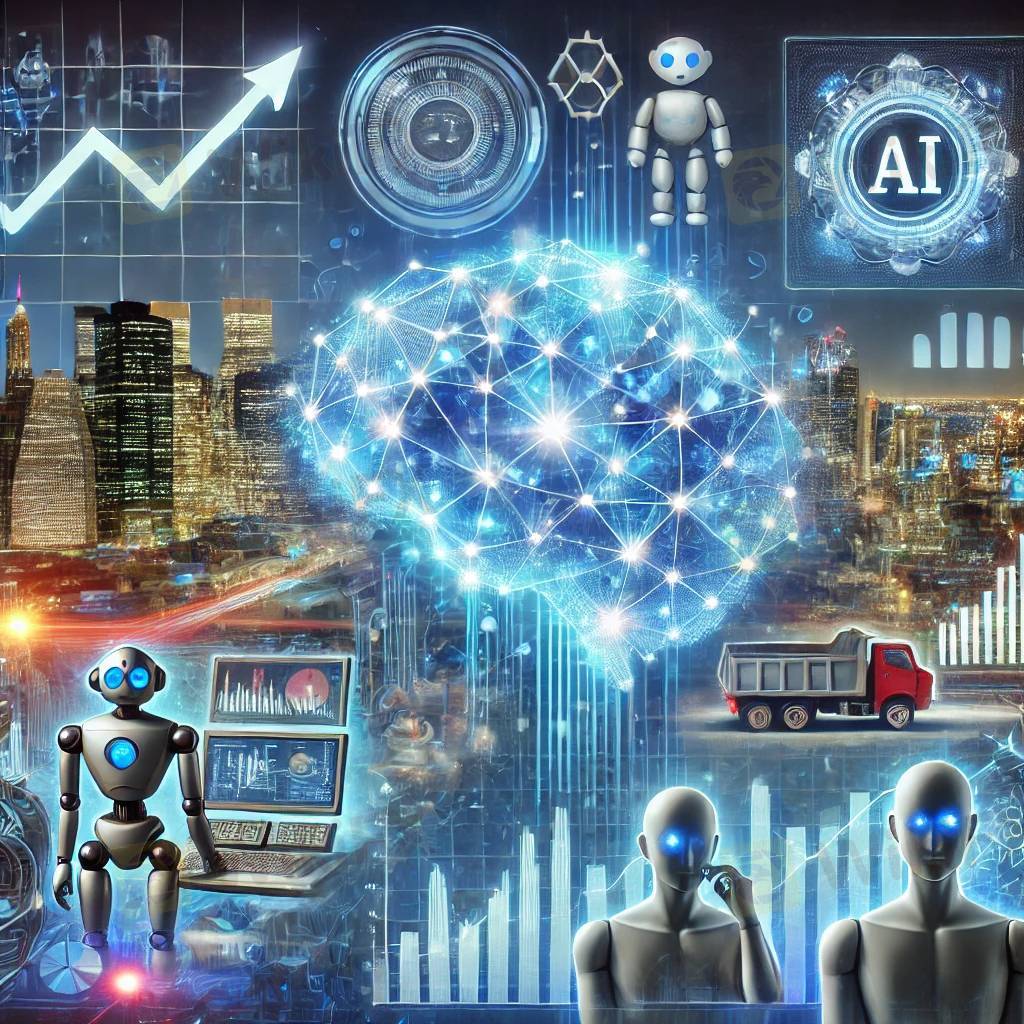
2025-02-17 19:54
الصناعةThe Economics of Artificial Intelligence
#firstdealofthenewyearastylz
AI is transforming economies by boosting productivity, automating tasks, and driving innovation. While it enhances efficiency in industries like healthcare, finance, and manufacturing, it also disrupts labor markets by replacing routine jobs while creating new opportunities in AI-related fields.
AI’s economic impact extends to business models, reducing costs but requiring significant investments in data, computing power, and skilled labor. Market competition is influenced by AI, with large tech firms gaining advantages while startups leverage AI to enter new markets.
Wealth distribution remains a challenge, as AI-driven automation may widen income inequality. Governments are exploring policies like universal basic income, reskilling programs, and AI taxation to address these disparities.
On a global scale, AI is a key factor in economic competition, with countries investing in AI research to gain strategic advantages. Regulations on data privacy, fairness, and monopolies are shaping how AI integrates into economies.
Overall, while AI offers immense economic benefits, careful policy planning is needed to manage job displacement, inequality, and ethical concerns.
إعجاب 0

Nike9214
وسطاء
مناقشة حية
الصناعة
NFP updates URDU
الصناعة
دوج كوين
الصناعة
دوجكوين
الصناعة
صعود الذهب
الصناعة
لقاحات كورونا
الصناعة
السيارات
فئة المنتدى

منصة

المعرض

الوكيل

التوظيف

استيراتيجية التداول التلقائي

الصناعة

السوق

المؤشر
The Economics of Artificial Intelligence
 Hong Kong | 2025-02-17 19:54
Hong Kong | 2025-02-17 19:54#firstdealofthenewyearastylz
AI is transforming economies by boosting productivity, automating tasks, and driving innovation. While it enhances efficiency in industries like healthcare, finance, and manufacturing, it also disrupts labor markets by replacing routine jobs while creating new opportunities in AI-related fields.
AI’s economic impact extends to business models, reducing costs but requiring significant investments in data, computing power, and skilled labor. Market competition is influenced by AI, with large tech firms gaining advantages while startups leverage AI to enter new markets.
Wealth distribution remains a challenge, as AI-driven automation may widen income inequality. Governments are exploring policies like universal basic income, reskilling programs, and AI taxation to address these disparities.
On a global scale, AI is a key factor in economic competition, with countries investing in AI research to gain strategic advantages. Regulations on data privacy, fairness, and monopolies are shaping how AI integrates into economies.
Overall, while AI offers immense economic benefits, careful policy planning is needed to manage job displacement, inequality, and ethical concerns.
إعجاب 0
أريد أن اترك تعليق
تقديم
0تعليقات

لا توجد تعليقات حتى الآن ، كن أول شخص يعلق

تقديم
لا توجد تعليقات حتى الآن ، كن أول شخص يعلق